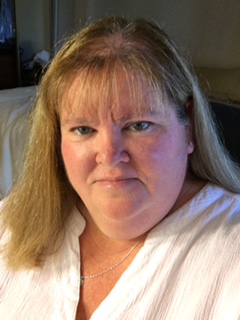
Professionalism in the Healthcare Profession
Do you magically become a professional when you obtain a certificate that says you attended school for a certain amount of time? There are ways to represent professionalism, but what does it really mean to you?
Let’s examine what it means to be professional:
- How you dress, where you work, the places you go, or the people you associate with?
- The level of education you’ve accomplished, the school you attended, or the number of credentials behind your name?
- How much education does it take to be a professional? Is professionalism complete at a bachelor’s degree, or even a master’s degree?
Define Professionalism
Merriam-Webster Dictionary defines professionalism as:
The conduct, aims, or qualities that characterize or mark a profession or a professional person.
They also define a profession as:
A calling requiring specialized knowledge and often long and intensive academic preparation.
Being a professional is potentially a combination of acquired education in addition to a few other qualities. Not all professionals have the top degrees in their field of expertise. However, these individuals have dedicated many hours of time and effort to master the knowledge they need to be successful and they recognize the importance of sustaining that knowledge by keeping it up to date.
For example, Certified Professional Coders (CPCs®) seek ways to earn Continuing Education Units (CEUs) to maintain their credentials and to keep current with medical coding changes and healthcare regulations. (Those of you on listening to my CodeCast Podcast to receive the latest changes, updates, and current medical business issues are hopefully entertained as well!)
Look Professional
Another important step to professionalism is to look the part that you are trying to emanate. This means portraying your outward appearance in the best possible light.
Dress for success does not always require a three-piece suit. If it did then I would be out of the club for sure!
Be polished and dressed appropriately for the environment you work in. Whether you are the slacks and blouse gal, the khaki’s and polo guy, or the scrubs and an office uniform, make sure your hair is brushed, teeth are clean, your face is washed, and you look presentable: not only to patients walking in, or physician you’re meeting with, but for your fellow employees as well.
Also, make sure you always have mints with you, not gum… especially if you drink coffee. No one will tell you so I will!
You need an Altoid… and for those of you that brush your teeth, but feel the need to take a bite of your kid’s Peanut Butter Captain Crunch on the way out the door, you need not one, but two mints. (That’s all I’m saying!)
Exemplify Professionalism
Being a professional not only requires specialized knowledge, but also the highest level of competency.
You can depend upon a professional to accomplish the task set before them:
- They hold themselves accountable for both word and deed, and they do the right thing for the right reason.
- They have learned the secret of forming good relationships by treating others with the same level of respect and dignity they desire to be treated.
- They recognize that we’re all in this game called of life together, and they thrive on the ability to help others succeed.
- They know that when they lend a helping hand to someone else, it’s one step closer to their own success.
That’s why I decided to start the Codecast® Podcast. If I can help one of you, inspire one of you, or make you feel like you are on the right path professionally, then that only makes me better personally and professionally.
Professionals exhibit qualities such as honesty and integrity. They are true to their values, even when it means taking the road less traveled.
If you know me at all, I am someone who colors outside the lines, but within the bounds of professionalism. I always try and look at everyone’s point of view, not just mine, and where can I improve and find opportunities to share with you.
Achieve Professionalism
Being a healthcare professional provides the opportunity to achieve professionalism every day. We learn from each other; but even more importantly, there’s always a chance to pass what we have learned on to someone else.
We demonstrate excellence in how we relate with others, as well as how we perform our responsibilities. We recognize teamwork as an important component of our professional conduct. We show the diversity that enhances learning and knowledge which is so important to professionalism
Medical coders succeed through the most difficult obstacles because we are determined to identify as professionals. Although being a certified medical coder is only one of many professions, all professions have their own criteria to demonstrate professionalism ― but the root definition of professionalism in each one remains consistent.

Fletcher BS, CPC, CCC, CEMC, CCS, CCS-P, CMC, CMSCS, ACS-CA, SCP-CA, QMGC, QMCRC, QMPM, PACS
Terry Fletcher Consulting, Inc.
Healthcare Coding and Reimbursement Consultant, Educator and Auditor
Podcast Host, CodeCast® , NSCHBC Edge Podcast, #TerryTuesday TCG Podcast
NAMAS and AAPC Educational Speaker and Writer